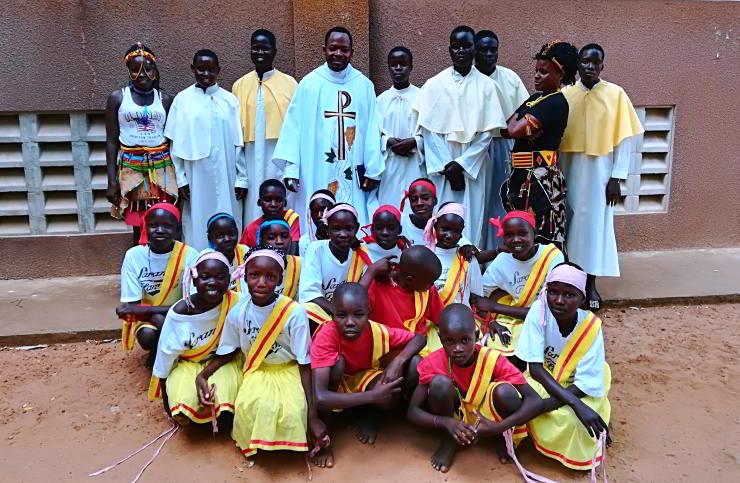Father Inácio Manuel Mutatapuele talks about his mission among the Karimojong people in Uganda. “They have taught me to live simply, to be grateful for small things, and to trust in God’s providence.”
In the dry, stony landscape of northeastern Uganda lies Karamoja, a region of striking contrasts, where beauty coexists with hardship, and resilience is born from vulnerability. This is the homeland of the Karamojong people: proud pastoralists with a rich culture and a deep spiritual thirst.
As a Comboni Missionary priest, I have been called to live and serve among them, sharing in their struggles and their joys, and witnessing to the hope that faith in Christ brings. Through sacraments, pastoral care, and simple daily presence, I try to embody the love of Christ, to be, in a small but real way, a missionary of hope.
My mission draws strength from the words of St. Daniel Comboni, our founder, who dreamed of “saving Africa by Africans,” and from the late Pope Francis’ reminder that the Church must always go forth, carrying the joy of the Gospel to the peripheries (Evangelii Gaudium, 20).
Karamoja is often described as one of Uganda’s most neglected regions, plagued by droughts, hunger, cattle raids, and low educational attainment. Yet, amid these hardships, I have found incredible human dignity and an inspiring faith. When I first arrived, everything felt unfamiliar: the customs, the language, the territory.
But slowly, as I began to walk with the people, listening to their stories, celebrating with them, grieving with them, I saw how the Gospel is alive in hidden and surprising ways. Here, faith is carried by mothers who walk for hours to attend catechism, by elders who teach under the shade of trees, and by children who sing and dance at Mass with pure joy. Hope is not theoretical here; it is lived every day, born from suffering but sustained by grace.
My mission does not rely on great projects or big events. Rather, it rests on presence. That’s what I strive to be: a witness. Living among the people, eating their food, speaking their language, and walking their dusty paths becomes the mission itself. Even accompanying a family in mourning, or visiting the sick on a Thursday with the Blessed Sacrament, becomes an expression of the Gospel.
Celebrating the Eucharist under a tree or sharing laughter with the youth during a football match – these ordinary moments are the true fabric of mission.
The youth in Karamoja face real difficulties: unemployment, alcoholism, early marriage, and the tug-of-war between traditional values and modern influence. Many feel invisible, voiceless, and uncertain of their place in the world. In my ministry, I walk with them through choirs, sports, small Christian communities, and retreats. I remind them of their worth and dignity. I urge them to believe in their potential and to become agents of positive change.
Karamoja’s poverty is both material and spiritual. Humanitarian aid is important, but more powerful is the witness of Christian love. I have seen families bring gifts to church despite having little to eat. I have heard prayers of thanks from people who have known hunger. This is where the mystery of Christian hope shines most clearly: it takes root in dry soil and still bears fruit.
The Eucharist is the heart of everything. Whether celebrated in a humble chapel or under a tree in the bush, it unites us most powerfully. In every Mass, I affirm to them that Christ is present, right here, even in suffering. The broken bread and poured wine reflect the missionary life: offered, shared, and given in love.
Challenges abound: violence, food shortages, child deaths, broken roads, and stalled development. These wounds can be heavy to bear. Yet they also purify us, reminding me that our mission is not to control or to succeed by worldly standards, but to remain faithful.
Though I came to bring the Gospel, I have been evangelised in return. The generosity, joy, and resilience of the Karamojong people have reshaped my heart. They have taught me to live simply, to be grateful for small things, and to trust in God’s providence. Mission is not a one-way street; it is a journey walked together.






